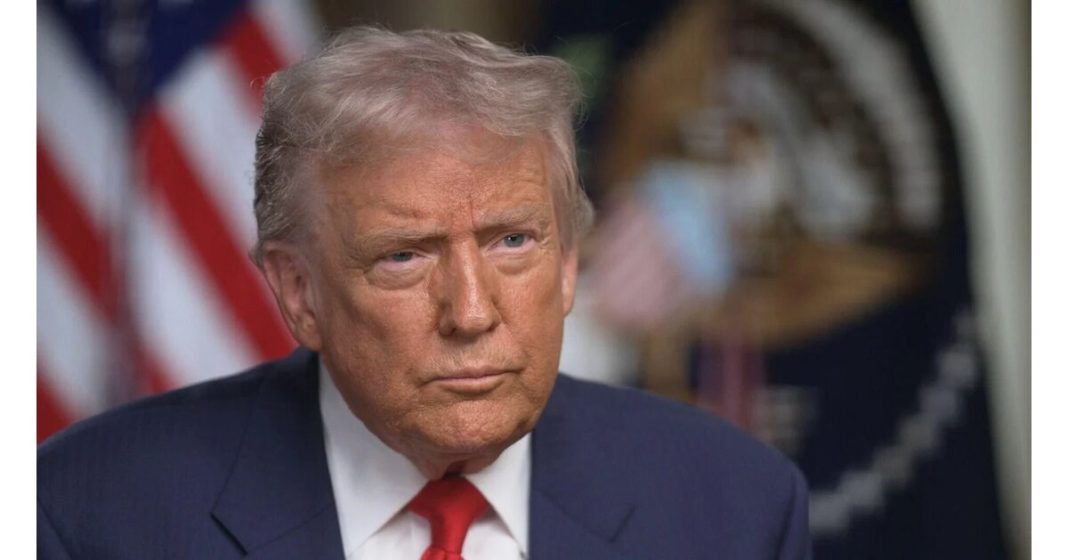On Sunday, U.S. President Donald Trump made a bombshell claim that Pakistan is among the several countries that are actively testing their nuclear weapons in his latest interview with CBS News’ 60 Minutes.
He made these shocking revelations in response to a question on Trump’s recent announcement of the US resuming testing of nuclear weapons after more than 30 years. While justifying the decision, he said that all the major countries, including China, Russia, North Korea, and Pakistan, are conducting tests while the United States has refrained from doing so.
“Russia is testing, and China is testing — but they don’t talk about it. We are an open society. We are different. We talk about it because otherwise you people are going to report,” Trump said.
“They don’t have reporters who are going to be writing about it. We’re going to test because they test and others test. And certainly North Korea’s also testing. Pakistan has been testing,” Trump added.
“We’re going to test because they test and others test. And I don’t want to be the only country that doesn’t test,” he added
Trump even added that most of these countries are testing underground, where people don’t know exactly what’s happening.
“They– they test way under– underground where people don’t know exactly what’s happening with the test. You feel a little bit of a vibration. They test, and we don’t test. We have to test,” he said.
Trump even claimed that the U.S. currently has more nuclear weapons than any other country in the world. Trump also revealed that he has discussed denuclearization with Russian President Vladimir Putin and Chinese President Xi Jinping.
That’s a huge claim by @realDonaldTrump that Pakistan has been testing nuclear weapons joining Russia, China and North Korea. Let’s see how @ForeignOfficePk responds. There could be implications of this claim. Was this deliberate or inadvertent? pic.twitter.com/aSXB9lZsvj
— Baqir Sajjad (@baqirsajjad) November 3, 2025
“We have enough nuclear weapons to blow up the world 150 times,” Trump said. “Russia has a lot of nuclear weapons, and China will have a lot. They have some. They have quite a bit.”
The shocking revelation made by former U.S. President Donald Trump, alleging that Pakistan is testing its nuclear weapons underground, is being received with extreme caution in Indian media circles. The remarks have sparked widespread discussion and concern in India, especially at a time when the country has already commenced its tri-services military exercise “Trishul” along the border with Pakistan.
US President Donald Trump said last week he had ordered the Pentagon to start nuclear weapons testing on a level with China and Russia — just minutes before opening a high-stakes summit with Chinese leader Xi Jinping.
The move comes after Russian President Vladimir Putin said Wednesday that Moscow had successfully tested a nuclear-capable, nuclear-powered underwater drone, in defiance of Washington’s warnings.
“Because of other countries’ testing programs, I have instructed the Department of War to start testing our Nuclear Weapons on an equal basis,” Trump wrote in a social media post that specifically referenced Russia and China.
Trump also noted the United States has more nuclear weapons than any other country, praising his own efforts to do “a complete update and renovation of existing weapons.”
Read more: Bagram Standoff: Afghanistan refuse U.S. Pressure, China backs Kabul
He added that “Russia is second, and China is a distant third, but will be even within five years.”
The International Campaign to Abolish Nuclear Weapons (ICAN) says nine countries possess nuclear weapons: Russia, the United States, China, France, the United Kingdom, Pakistan, India, Israel, and North Korea.
Of the roughly 12,331 nuclear warheads ICAN counts, more than 5,500 belong to Russia, while the United States owns 5,044.
According to a report published in NBC, quoting the Chicago-based nonprofit Bulletin of the Atomic Scientists, China is rapidly expanding its nuclear stockpile, the country is expected to have accumulated 600 nuclear warheads.
From GVS South Asia Desk, With Additional Inputs from AFP














